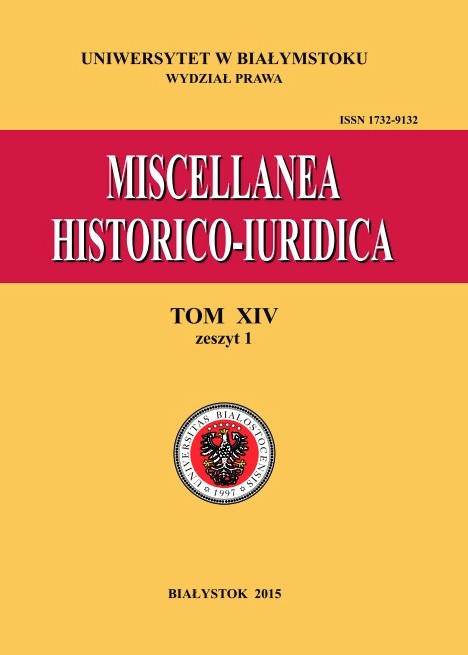Dilemmas of Rule of Law in Post-transitional Czechoslovakia (Czech Rep.) and Hungary – Case Study
Keywords:
Czechoslovakia, Hungary, dealing with the past, de-communisation, rule of law after communismAbstract
The main task of this text is to present some general statements and discussions related to the rule of law dilemmas in relation to dealing with past processes in post-transitional Czechoslovakia (now the Czech Republic) and Hungary. One of the main challenges is to answer the question of how deeply disputes were rooted in national memory relating to communist contempt for the law and how influential was the fear of suspicion that dealing with the past in the post-communist era just represents some kind of political revenge.
References
Geremek B., Geremek B. rozmowa z Adamem Michnikiem, „Gazeta Wyborcza” z 16 września 1993 r.
Gonzalez-Enriquez C., Decomunization and Political Justice in Central and Eastern Europe, [w:] The Politics of Memory. Transitional Justice in Democratizing Societies, red. Aguilar P., Barahona de Brito A., Gonzalez-Enriquez C., New York 2001.
Halmai G., Scheppele K., Living Well is the Best Revenge – The Hungarian Approach to Judging the Past, [w:] Transitional Justice and the Rule of Law in New Democracies, Notre Dame and London 1997.
Raz J., The Rule of Law and Its Virtue, [w:] The Authority of Law, Essays on Law and Morality, Oxford University Press, 1979.
Solyom L., Role of Constitutional Courts in the Transition to Democracy, „International Sociology” 2013, t. 18, nr 1.
Tietel R., Transitional Rule of Law, [w:] Rethinking the rule of law after the communism, red. A. Czarnota, M. Krygier, W. Sadurski, Budapest, New York 2005.
Uitz R., Constitutional Courts in Central and Eastern Europe: What makes a question too political?, „Juridica – Tartu Ulikool oigusteaduskonna ajakiri” 2007, nr II.







